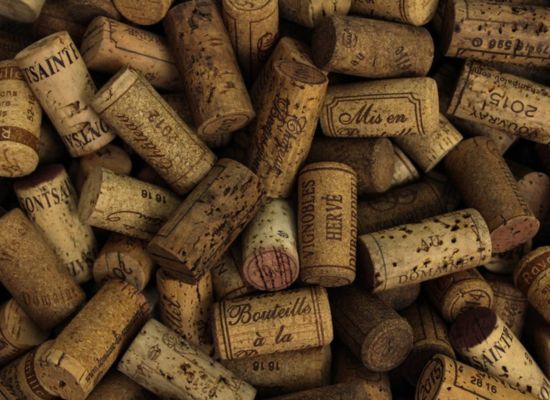Educating Sommeliers Worldwide.
By Beverage Trade Network

This summary of three expert perspectives on the sommelier’s role shows how the profession has changed and where it is now headed. Although some express a gloomy perspective, with adaptation and keen attention to current trends, the sommelier’s future remains bright.
The role of the sommelier, once central to the fine dining experience, has undergone significant changes over the years. This evolution reflects broader shifts in the restaurant industry, driven by economic pressures, changing consumer preferences, and, most recently, the economic and social impacts of the COVID-19 pandemic. Examining the perspectives of three wine industry experts, winemaker Robert Sinskey, New York Times wine columnist Eric Asimov, and the San Francisco Chronicle’s Esther Mobley, allows tracing how the status and function of sommeliers have transformed from their heyday to the current, more uncertain landscape.
Robert Sinskey’s 2015 article painted a picture of a time when sommeliers enjoyed a prominent and respected position within the restaurant industry. During this period, sommeliers were not only wine experts but also integral to the dining experience, providing a bridge between the kitchen and the customer. They curated extensive wine lists, educated the staff, and offered personalized recommendations to diners, elevating the meal with stories and insights about each bottle.
Sinskey highlights how sommeliers became celebrities in their own right, thanks in part to the burgeoning interest in wine culture. Shows like the “Somm” series and the rise of social media allowed sommeliers to share their knowledge and passion with a broader audience. This period saw an increase in the number of restaurants employing dedicated wine professionals, as well as the proliferation of wine education programs and certifications.

Source: Unsplash
By early 2024, Eric Asimov’s observations, entitled “The Twilight of the American Sommelier,” reveal a stark contrast to the golden age described by Sinskey. The COVID-19 pandemic brought unprecedented challenges to the restaurant industry, fundamentally altering its economic model. Asimov notes that many restaurants, even those with a strong wine focus, have been forced to cut costs, and one of the casualties has been the sommelier position.
Asimov recounts how the pandemic exacerbated existing labor shortages, leading to higher wages and increased operating costs. In this environment, many restaurants found it difficult to justify the expense of a dedicated wine professional. Instead, the duties traditionally performed by sommeliers have often been redistributed to servers, bartenders, or managers, or outsourced to wine consultants. This shift has led to less creative and more generic wine lists, with fewer opportunities for staff training and customer education.
Despite these changes, Asimov acknowledges that the highest-end restaurants still maintain dedicated sommelier teams. However, for many establishments, the sommelier has become a “luxury you don’t always need,” reflecting a broader trend towards efficiency over-specialization in the post-pandemic restaurant landscape.
Esther Mobley’s 2024 article in the San Francisco Chronicle was a reaction to Asimov. It echoes many of his concerns but also highlights a growing sentiment among sommeliers themselves. Mobley notes that the pandemic prompted many sommeliers to reassess their careers and work-life balance. The demanding hours and physical toll of restaurant work led many to explore alternative opportunities, such as wine retail, consulting, and online wine clubs.
Mobley points out that this shift has not only affected the availability of sommeliers but also the quality of wine service in restaurants. Without dedicated wine professionals, many establishments struggle to maintain the same level of expertise and customer engagement. This decline in the sommelier’s presence has broader implications for the wine industry, as fewer restaurants can offer the same level of discovery and education to their patrons.
However, Mobley also sees potential for a rebound, at least in California. She suggests that as the restaurant industry stabilizes, there may be opportunities for sommeliers to return to new and innovative roles. The growing interest in natural and sustainable wines, for instance, could provide a niche for sommeliers to re-establish their value by curating unique, story-driven wine lists that resonate with contemporary diners.

Source: Unsplash
The perspectives of Sinskey, Asimov, and Mobley collectively illustrate a complex and evolving picture of the sommelier profession over the past ten years. The golden age described by Sinskey, characterized by celebrity and specialization, has given way to a more utilitarian approach in the wake of the pandemic, as highlighted by Asimov. Meanwhile, Mobley’s insights suggest that while the role of the sommelier has diminished in many respects, there is still room for optimism and reinvention.
The future of the sommelier may well depend on the ability of the restaurant industry to adapt to ongoing economic pressures while also recognizing the unique value that wine professionals bring to the dining experience. This is certainly reflected by the judging panels of events like the Sommeliers Choice Awards and the London Wine Competition as well as by an increasing number of entries from wineries keen to engage with the on-trade. As the industry continues to evolve, the role of the sommelier will likely change in ways that reflect broader shifts in consumer preferences and the economic landscape.
In all, the status of sommeliers has experienced significant fluctuations over the past decade. From the heights of their golden age to the challenges of the post-pandemic world, their journey reflects broader trends in the restaurant industry. While the future remains uncertain, the passion and expertise of sommeliers continue to hold the potential to enrich the dining experience in new and unexpected ways.
Header Image Source: Unsplash